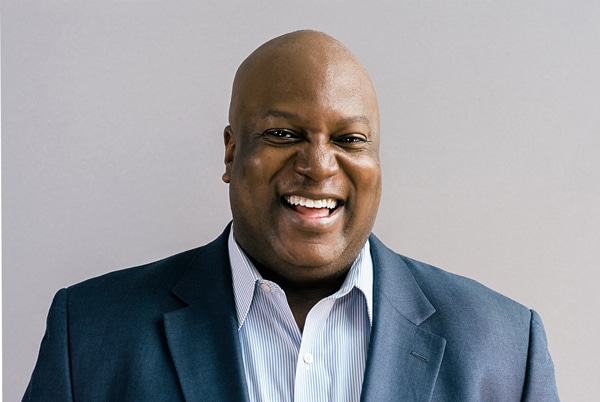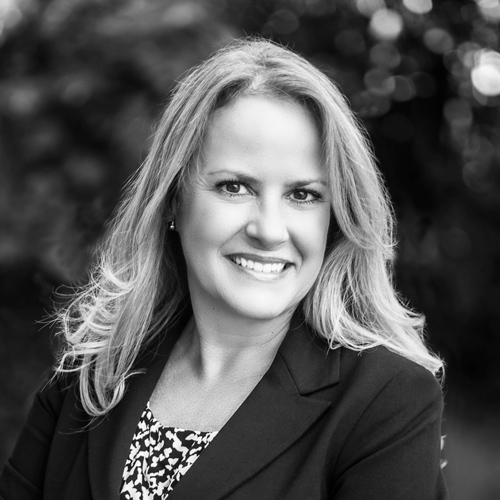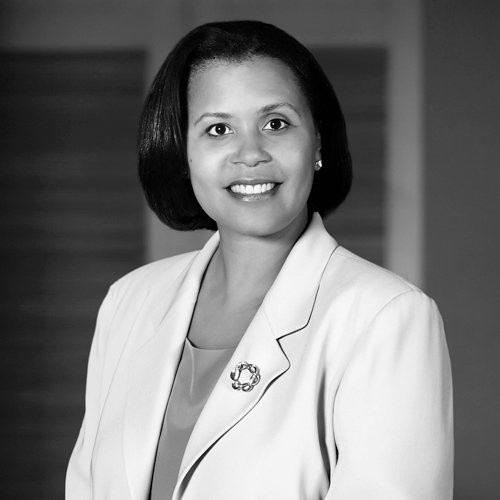
Jason L. Brown’s a busy guy. In addition to serving as general counsel of the Americas for Dyson, Inc., the British-based technology company most famous for its innovative vacuum cleaners, Brown also lends his time to a number of different community organizations and boards. It keeps him constantly moving, but he wouldn’t have it any other way. “The outlet of work outside of work is critical, I think, for both your full development and a balanced life,” he says. “You can pick up and gain so much more to make you a better leader.”
His numerous roles outside of Dyson include positions as a board member of Make-A-Wish Illinois, as a vice-chair and board member of Chicago’s Legal Prep Charter Academy, and as a deacon at his church. He also volunteers for Chicago’s Posse Foundation, a college-access and youth leadership development program, and he has long served as a guiding force for ACC Chicago’s Diversity Summer Internship Program, which he helped develop roughly fourteen years ago.
His passion for the work stems from his ability to provide opportunities and help young women and men achieve their potential. “That’s what inspires me,” he says. “That’s what gets me up and gets me inspired. Everything I’m involved in touches on that in some way.”
It also affects his work at Dyson, where he’s been able to integrate many of the lessons he’s learned through his charity work into his own leadership style. Here’s a look at a few of them.
1) Understand everyone is different
When Brown says this, he’s referring to not just a person’s racial or economic makeup nor their various beliefs; rather, he’s pointing to what that all amounts to within the individual. “I think it’s broader than just the issue of diversity,” he explains. “Everyone has a different background, a different story. Everyone’s coming from a different perspective, and in each of the organizations for which I work, you have a goal—some are long-term goals, some are short-term goals, but you still have goals. It takes the collective coming together to achieve those goals.”
Brown speaks of the “commonality” that brings disparate individuals together in pursuit of goals, and that commonality is something he searches for at Dyson as well. For him, it’s about finding the through line that connects all his team members. That doesn’t happen, however, unless he takes the time to really connect with each member.
“If you can find that common thread that really drives people, you can be very successful,” he says. “I need to take account of each and every individual, to be purposeful in learning and understanding what everyone’s story and background is.”
Outside counsel that Brown works with have taken note of the effectiveness of his approach, too. “Jason brings significant experience to every issue, yet he wants the views from all members of his team,” says Ross M. Weisman, a partner with Kirkland & Ellis LLP. “He values individuals with different backgrounds because he believes diversity, in all senses, provides the best results.”
2) Engage everyone
A natural next step after developing an understanding of one’s team members is to learn how to engage them in ways that make them feel like integral parts of an organization. That’s important in Brown’s charity work, where everyone involved wants to feel as if they’re making a difference, especially when they’re sacrificing time with their own family in pursuit of a cause. In business, however, the challenge is convincing your team that it’s about more than compensation.
One of the ways Brown attempts to foster a culture of engagement at Dyson is by holding monthly meetings that, each month, feature a different member of the team at the helm. “It’s more than just putting together an agenda,” he says. “They lead the meeting and, at the end, are responsible for what I call a ‘teachable moment,’ where they teach everybody on the team something that is fundamentally important to them.”
It doesn’t have to be business related, either. Brown says teachable moments have included tips on travel, fitness, cooking, and other topics. “What I’ve found happens is that, when they’re not the main person hosting, they’re engaged because they want to see what everyone else is doing,” he says.
3) Celebrate the small stuff
Every Make-a-Wish Foundation board meeting, Brown explains, begins with a story about a wish that was recently fulfilled. “We’ve got to talk about the money we’ve got to raise, the recruiting aspects, but we always start by hearing about a wish,” he says. “And that brings us all back to why we’re there. It’s good to have that perspective.”
Brown has brought that concept of perspective to his team at Dyson by ensuring that both he and the team celebrate their small victories—not just birthdays and work anniversaries but also the incremental steps toward the company’s larger goals. “This way,” he says with a laugh, “we don’t get clouded in an overbearing sense of doom.”
4) Have a realistic outlook
When life’s inevitable storm clouds arrive, leaders need to ask themselves how such issues will impact the morale of their teams. They also need to know how best to spin life’s challenges in ways that are both authentic and positive.
“If you’re involved in charity work, especially if it’s diversified, you see a lot of challenges,” Brown says, speaking of the ways in which leaders must make lemonade from lemons. “That, for me, has been a very powerful lesson that I continue to learn.”
But, one can’t approach such challenges with a mask of positivity. Honesty plays an important part, too. “You have to share a realistic, authentic outlook with your team so that you can be that rock that they need you to be,” Brown says. “You take things in stride, but at the same time, you can take it in perspective. The sky isn’t always falling.”
Expertise Spotlight
Dyson partner Kirkland & Ellis is one of the world’s leading law firms, with more than 2,000 lawyers practicing from 13 offices in the United States, Europe, and Asia. Its clients and experience cut across every major industry and discipline. Clients across the globe call upon Kirkland to handle their most important and complex corporate, litigation, intellectual property, and restructuring matters.
Kirkland’s principal goals are to provide the highest-quality legal services available anywhere; to be an instrumental part of each client’s success; and to recruit, retain, and advance the brightest legal talent. The firm seeks long-term, partnering relationships with clients in order to provide the best total solution to the client’s legal needs. Kirkland stresses—and clients rightfully expect—good results. To that end, the firm employs innovative, pragmatic strategies and hard work
to ensure that its clients’ legal needs
are met.
**
Barnes & Thornburg LLP:
“Jason’s sophisticated, business-minded, innovative counsel at Dyson is amplified by his unparalleled leadership and legacy of service to diverse youth and the legal community. We congratulate Jason and his team on this well-deserved recognition.”
—Gray I. Mateo-Harris, Partner


